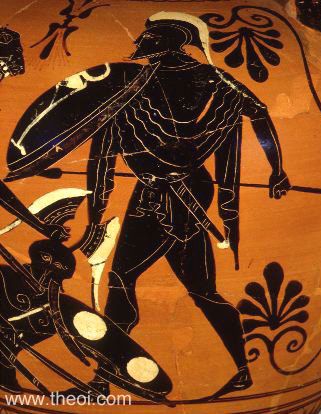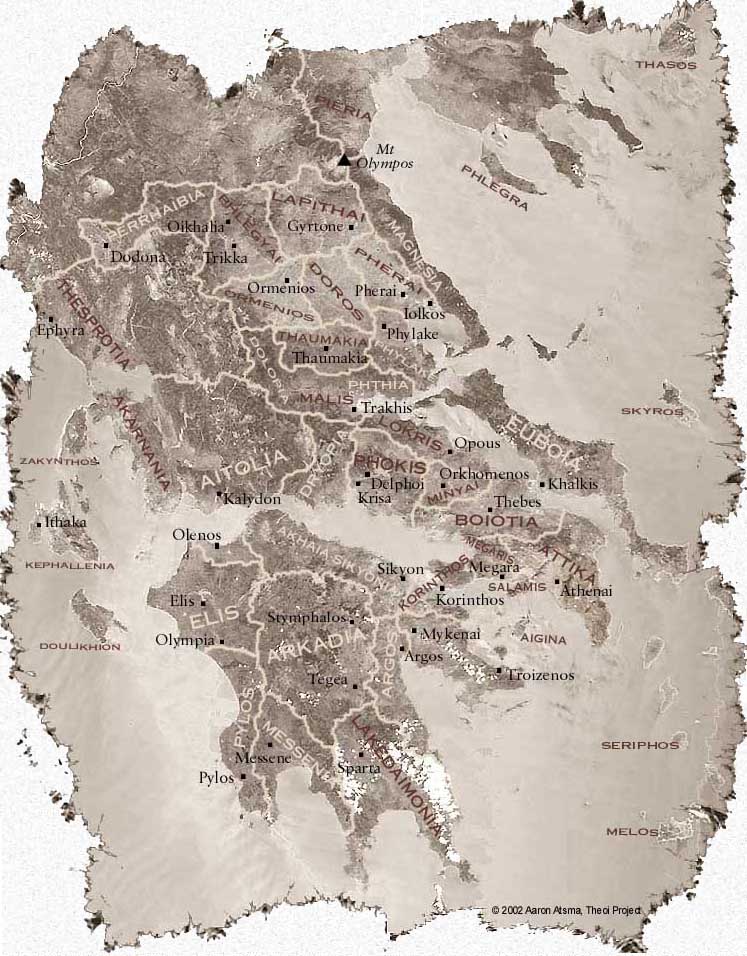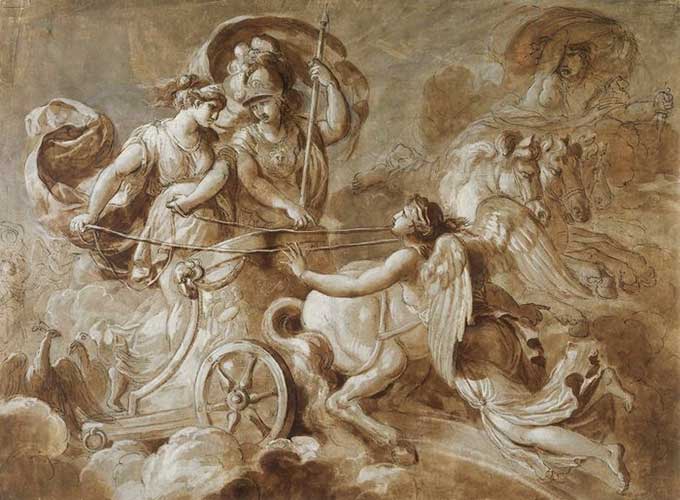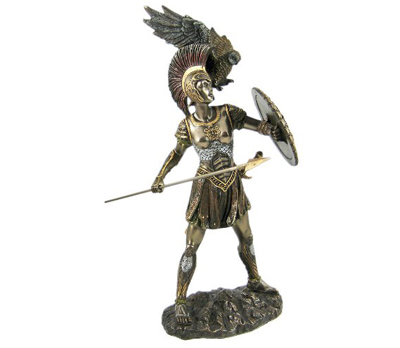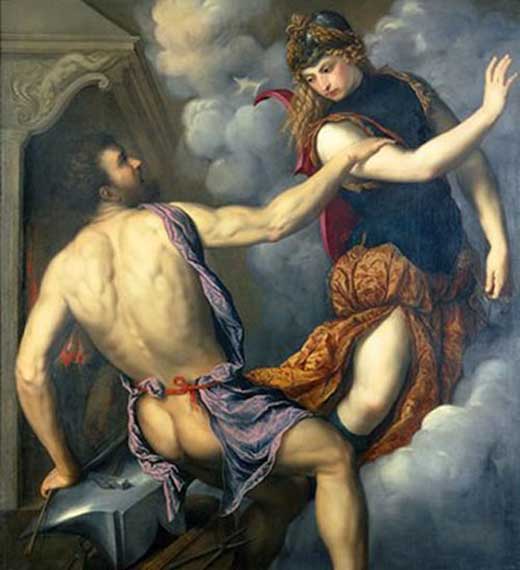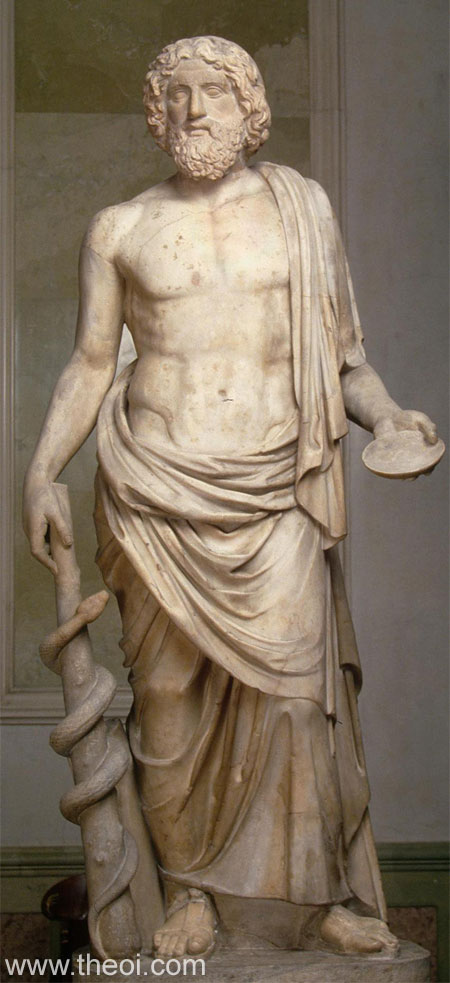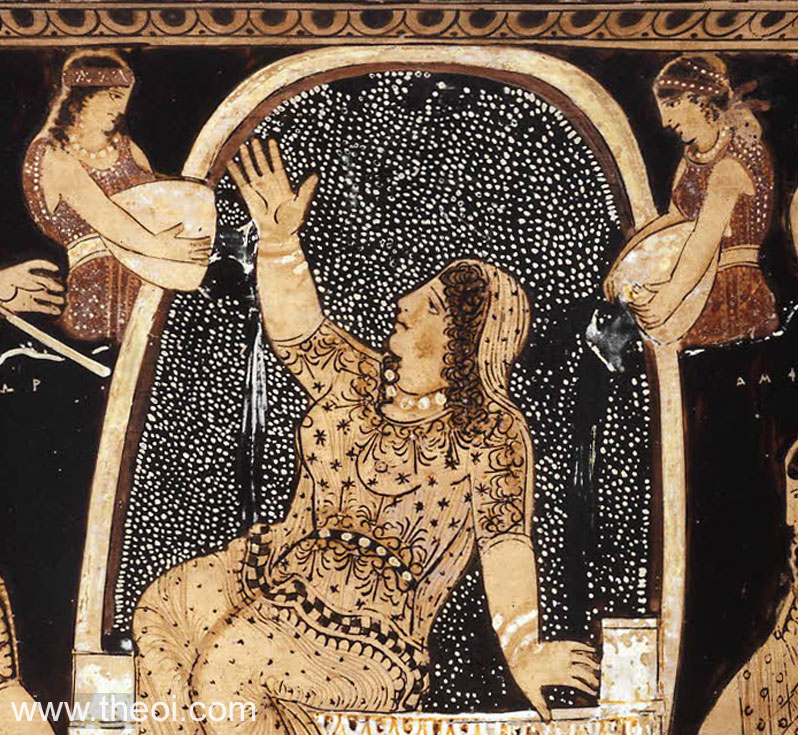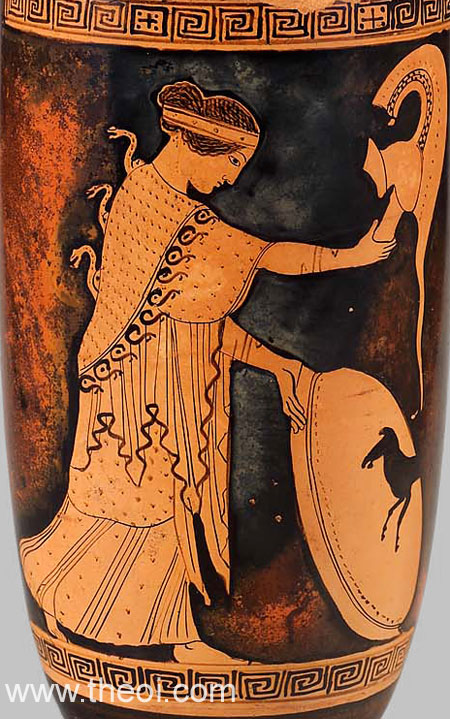
Athena was one of the Olympian Goddesses in Greek mythology. She held a seat on the council of the Gods on Mount Olympus, home of the gods. Athena was not the strongest god, like Zeus, but she was one of the most powerful since she represented war and battle strategy.
Athena used her power and knowledge to help many Greek heroes and demigods, especially since Zeus’s wife, Hera, was after most of them for being the children of Zeus’s mistresses. Hera let her jealous be the reason for the death of many figures in Greek mythology.
Athena Greek Symbolism
Athena was the Goddess of war, handicraft, and practical reason. Typical depictions of Athena show her in a dress or armor with a helmet sitting on her head. Sometimes you will also see an owl perched on one of her arms, which is her most prominent symbol of wisdom. She also has a spear in her left hand in some artworks. Her other symbols include a shield of goatskin (the aegis), the distaff (a spindle), and an olive tree (one of her gifts to the people of Athens).
Athena’s Owl
The owl of Athena was one of her most common symbols in Greek mythology. Athena’s owl represented knowledge, wisdom, perspicacity (insight), and erudition (great knowledge; scholarship). The city of Athens uses the owl to show their relationship with the goddess, Athena, and their love for her. There is even a temple in her honor in Athens that stands to this day, it is known as the temple of Athena Nike and can be found on the Acropolis of Athens, the locations for many ancient Greek structures.
The Aegis
The Aegis was the goatskin shield of Athena. It was forged by the Cyclopes in Hephaestus’ forge. The shield had the head of a Gorgon on it, a mythological creature. It also had golden scales that covered the shield; andwhen shaken, the Aegis is said to create a storm over Mount Ida in Crete. Zeus would sometimes use Athena’s shield to scare away mortals lingering below.
Athena Family Tree
Athena, even though she was an Olympian, she still had parents (or parent) who brought her into her immortal life. Athena’s father was Zeus, the ruler of the Olympian Gods. According to Greek mythology, Athena did not have a mother; it says that she came from the forehead of Zeus as afully-growngoddess.
Other sources say that Zeus swallowed Metis, the Goddess of counsel, while she was pregnant with Athena, and then brought her forth from his head. Her creation is what makes Athena so powerful since she came from Zeus alone.
Athena had no children but adopted Erichthonius.
Athena and Poseidon
Athens is a city in Greece and the location of many ancient structures and temples dedicated to the gods and goddesses in Greek mythology. Its name comes from the Goddess, Athena. However, before Athens became a dedication to Athena, there was a competition between Athena and Poseidon, the god of the sea, to determine who the people of ancient Athens would follow.
On the Acropolis, the citadel of Athens, Athena, and Poseidon each brought a gift to the people and let them decide whom their temple would represent. The people would have to make their decision based on whose gift was more useful to their city.Poseidon, being the god of the sea, brought the citizens a body of water; but the water was saltwater, so the people couldn’t drink from it, and it was useless except for fishing.
Athena’s gift was an olive tree, which could provide food, oil, shade, and wood, essential items the citizens of Athens needed to live. Athena won the contest by a landslide, but they built the temple in honor of both gods. This temple is still standing today in Athens, Greece.
The Pediments of the Parthenon
The contest between Athena and Poseidon isdepicted on the pediments of the Parthenon. The Parthenon is a temple in Athens for the Goddess, Athena. The Parthenon has pediments, or triangular spaces, on the cornices of the roof at each end of the temple. These pediments were the last parts of the building the builders included decorations on, and they depict scenes from Greek mythology, including that of Athena and Poseidon. The contest between the two gods is on the East corner.
Athena Helped the Demigods
Most of the stories in Greek mythology, the Iliad, and the Odyssey, feature the Goddess, Athena, present her as a helper to the demigods. She came to the rescue for many demigods who were in trouble, including Perseus, Hercules, and many others.
Athena Giving Help to Perseus
Perseus, the demigod son of Zeus and Danae, was the slayer of the Gorgon, Medusa. Medusa was a woman Athena cursed. Medusa used to be beautiful in her life, but after Poseidon raped her in Athena’s temple, Athena turned her into a monster with snakes for hair. You may have heard of Medusa and the stories of her turning men into stone with her cursed eyes.
When Perseus sought to destroy Medusa, he acquired the help of Athena and Hermes, who then helped him to complete his task.
Athena Giving Help to Hercules
Another demigod who received the help of Athena was Hercules. Hercules was a son of Zeus that was raised by two mortal parents. He was one of the strongest demigods, andone of the most famous and well-known. Athena helped Hercules in return for his aid in the Olympian’s battle against the Giants. Athena is mainly known for helping Hercules with the twelve tasks set to him by the Mycenean King, Eurystheus.
Summary
Athena played an enormous role in many stories in Greek mythology. She was smart; and even though she was the goddess of war, she was not violent when it wasn’t necessary. Athena, unlike Ares, knew how to be smart in battle and the importance of strategy.
Ares was also an Olympian god of war, but he had a savage and immoral way of fighting. Athena was much more gracious and kind; she was not prone to violence like Ares was.
